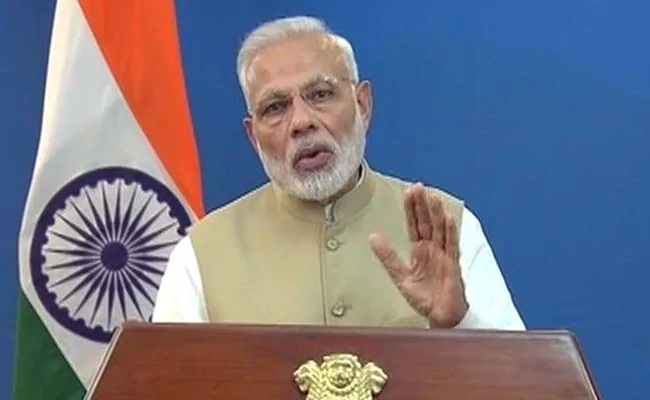TLI Staff
New Delhi: The GDP growth has been slipping quarter after quarter on weak demand and global headwinds but Modi government’s policy flips-flops have their own contribution to it.
Triggered by demonetisation, the Indian economy has been going downhill. A lot many steps have been taken to arrest the trend but they have failed to negate the impact of the wrong and ill-conceived policy decisions.
The latest round of U-turns has only made the matter worse accentuating the slowdown.
Even as the Modi government waited in the wings to come back to power for second time, its think-tank Niti Aayog set the target of shifting from internal combustion engine (ICE) to electric ones for bikes and three-wheelers. But soon after realizing that targets were impractical it dragged its feet.
But by the time it rolled back its decision damage was done. Two-wheeler and three-wheeler makers such as Bajaj, Honda, Hero and TVS that were already reporting de-growth started witnessing sharper fall in sales volume. The negativity spread to cars and commercial vehicles too adding to the trouble. The situation has now worsened with auto companies cutting down on production and resorting to retrenchment.
Seeing the deep crisis faced by the key manufacturing sector, the government has now said that it has no intention to phase out ICE bikes and tempos.
As per the recordings of a high-level inter-ministerial steering committee, the government wanted to phase out all ICE three-wheelers by March, 2023. The deadline for two-wheelers (below 150cc) was set at March, 2025.
The recordings seen by Top Lead India said that the decisions were taken after detailed deliberations and with the objective of cleaning up Indian cities and to ensure rapid transition towards electric vehicles and making India a manufacturing base for electric three-wheelers and two-wheelers.
This U-turn was followed by Finance Minister Nirmala Sithraman’s Union budget that proposed to levy surcharge on foreign portfolio investors (FPIs) and a 20 per cent tax on buyback of shares by listed companies. Within two months of the budget proposals, the Minister on August 23 announced to roll back the surcharge on FPIs. Subsequently, an ordinance was promulgated to go back to the pre-budget status.
But in between, FPIs pulled back their money from the capital market adding to negative sentiment. So much so that, it forced Finance Minister to start a stakeholder consultation to “understand their issues.” Generally, a stakeholder consultation takes place prior to budget presentation to take necessary steps to spur growth and investment.
“The flip-flops that we had in recent months definitely had a supporting impact but I don’t think that are significant or primary driver of slowdown. The overall business scenario, both global and domestic, is negative and therefore headwinds are being felt. The tax related issues made the sentiment negative and have an impact on profitability of businesses,” said a Mumbai-based research analyst.
Many experts believe that policy misadventures and U-turns have added to the uncertainty. A former banker wishing not to be named said that the biggest jolt to the economy came from demonetisation which has proved to be an unnecessary and unproductive adventure.
“Demonetisation achieved nothing except causing disruption. It brought economy to halt given that a large part of it was based on cash. You can’t wish away the reality that the large part of Indian economy was running on cash. When you froze that you caused a very major damage,” he said.
Several economists have maintained that a large chunk of black money is in the form of assets and consider demonetisation a major policy disaster. This was proved by the fact that almost each demonetised note came back to the banking channel.
“Demonetisation is perhaps unforgiveable,” said one of them.
As demonetisation had severe impact on informal sector and micro, small and medium enterprises (MSMEs) it has hugely contributed to job loss. Not surprisingly, unemployment rate reached 45-year high of 6.1 per cent in FY18. The GDP growth has reached six-year low of 5 per cent in April-June quarter of current fiscal year. The RBI has downgraded the growth forecast to 6.1 per cent for FY20.
But there seems hardly any learning for the government. It recently announced to ban single-use plastic from October 2 only to make another U-turn. It now says the move would be gradual to ensure that it does not affect jobs at a time when the prospects are already bleak.
Also read | Modinomics falls flat, GST mop-up and other data point to deep slowdown
Also read | RBI cuts repo rate by another 25 basis points to make loans cheaper, push growth
Also read | Sops for corporates to add production when it is already in excess

